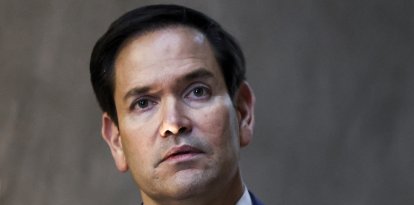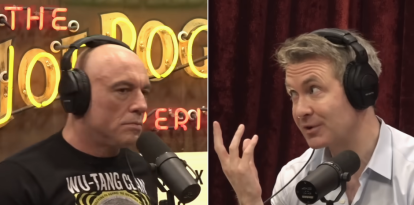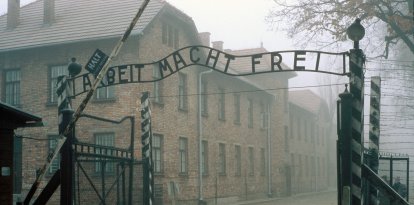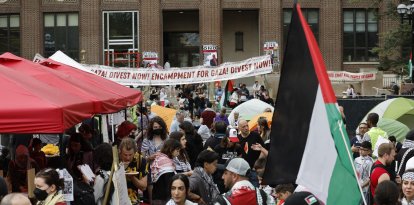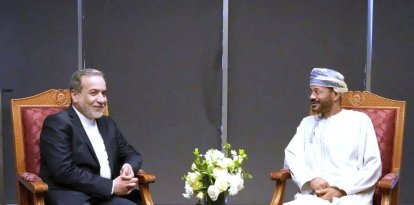For the first time in 30 years, the ANC may lose its absolute majority in South Africa
The ruling party is projected to secure over 40% of the votes, surpassing the Democratic Alliance, but falling short of an absolute majority.
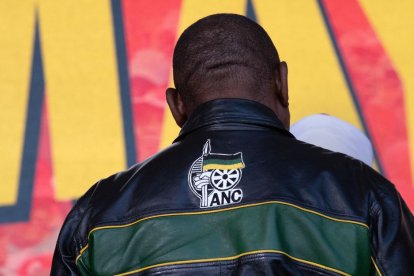
Cyril Ramaphosa, presidente de Sudáfrica, y presidente del gobernante Congreso Nacional Africano (
South Africa heads to the polls this Wednesday for its general elections, marking 30 years since the dismantling of apartheid. It presents a unique opportunity to potentially strip the African National Congress (ANC) of its absolute majority for the first time.
All polls indicate a significant lead for the ANC over the main opposition party, the Democratic Alliance (DA). However, their projected victory would exceed 40% of the votes but fall short of the 50% mark that the ANC has historically achieved.
As a result, the former liberation movement may need to seek support from other parties in Parliament to govern effectively or consider forming a coalition with one or more minority government partners.
The reasons for the fall
Beyond the inevitable wear and tear from three decades of uninterrupted governance, the potential decline of the ANC below the aforementioned threshold reflects negligent and destructive management. This trajectory moves South Africa, once the best-governed country in Africa, closer to the category of a failed state.
Over these 30 years, burdens on the private sector and widespread deterioration of public services have been exacerbated by the ANC's collectivist policies and tendencies towards racial retribution. This has resulted in rampant crime, chronic mass unemployment and a degradation of basic services, transforming essentials like running water and electricity into a luxury.
The resulting discontent signals a historic electoral setback for those responsible for the debacle. However, the loss of the ANC's absolute majority is unlikely to lead to immediate improvements for South Africans.
South African political map
The Democratic Alliance (DA), polling second with just over 20% of voting intention, is predominantly supported by the white minority but also attracts colored and Indian minorities. This centrist, liberal and pro-Western party has also gained popularity due to its successful governance in the Western Cape, where the black population is not the majority.
Since assuming power in the Cape Town city council and regional government in the 2000s, the DA has achieved notable successes. It boasts the healthiest financial accounts in South Africa, excels in infrastructure maintenance and construction and demonstrates impressive job creation figures.
However, widespread distrust of its image as a party primarily representing white interests continues to undermine its electoral growth potential.
Trailing behind the DA in the polls with just over 10% of the votes is Julius Malema's Economic Freedom Fighters (EFF), also known as the red berets. This radical faction, originating from the ANC, advocates for the forcible redistribution of land and openly espouses racial animosity.
A similar percentage of votes is anticipated for the party of ultra-corrupt former president Jacob Zuma, uMkhonto we Sizwe, also known as the Spear of the Nation, which is making its electoral debut under the banner of the former armed wing of the ANC. Zuma, with his Zulu background, poses a threat to the party he once dedicated his life to, presenting a radicalized version of the former liberation movement. He hopes to capitalize on his popularity in the Zulu heartland, particularly in the province of KwaZulu-Natal.
In addition to these major players, there are numerous small parties with varying ideological orientations and ethnic affiliations. While individually they don't surpass 5% of the vote, collectively they could play a significant role in tipping the balance of power.
The possible coalitions
In this fragmented political landscape, the ANC faces the challenge of securing support if it fails to achieve a majority.
If the ANC falls just short of the 50% mark, President Cyril Ramaphosa's party could potentially ally with minority formations that align closely with its agenda. This approach would enable the ANC to continue governing relatively comfortably without significant changes for another 5-year electoral cycle, which may not necessarily benefit South Africans.
However, other potential alliances appear more tumultuous.
At first glance, a pact with Julius Malema's red berets might seem like a natural option but it could lead to a radicalization of the ANC's policies, which could have negative repercussions. The differing temperaments and programmatic approaches of both parties, even if they share a desire for change, suggest that reaching a consensus would be challenging.
A coalition with Zuma's uMkhonto we Sizwe would carry similar risks of exacerbating the country's instability and even greater challenges in finding common ground with a formal rebel ally.
Given these circumstances, the most promising path for short-term improvement in South Africa seems to be for the ANC to abstain from revolutionary rhetoric and instead pursue moderation by forming an alliance with the DA.
In the best-case scenario, partnering with the opposition leader John Steenhuizen's party would inject pragmatism and economic orthodoxy into the government. In exchange, the ANC would need to relinquish some of its populist initiatives, potentially winning forgiveness from its voters for aligning with the historically white-led party.
A necessary risk
None of these scenarios are easy, and some of them could be catastrophic. However, the ANC losing its absolute majority represents a crucial initial step towards freeing South Africans from the grip of their former liberation movement.
Delaying this pivotal moment for another five years would only deepen the current crisis, potentially leading to even greater risks and challenges down the line.
RECOMMENDATION
